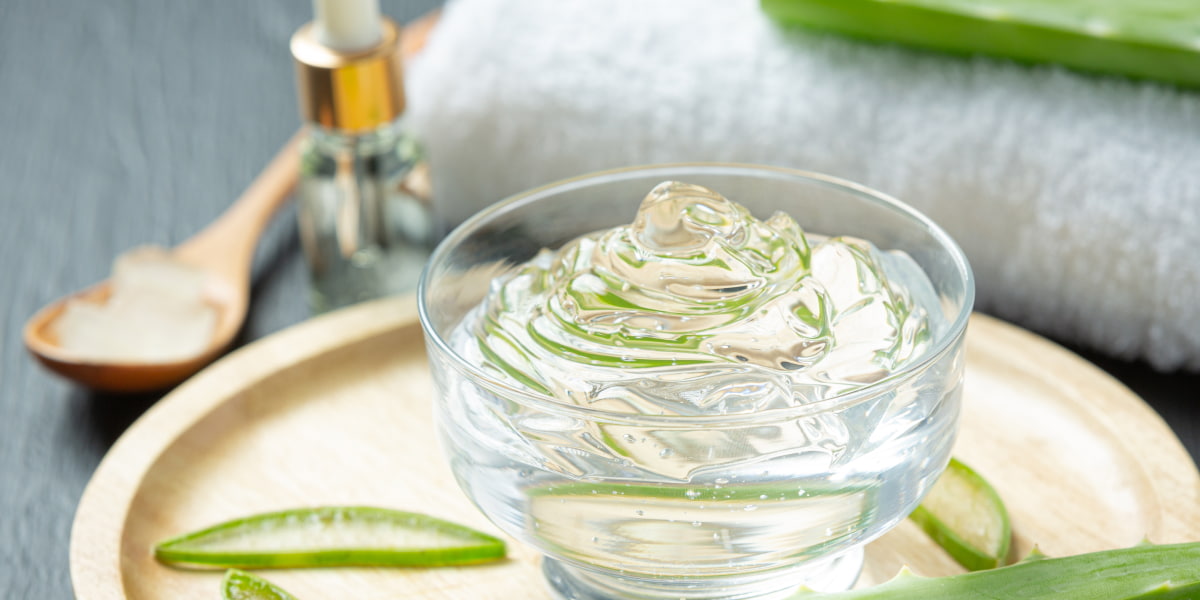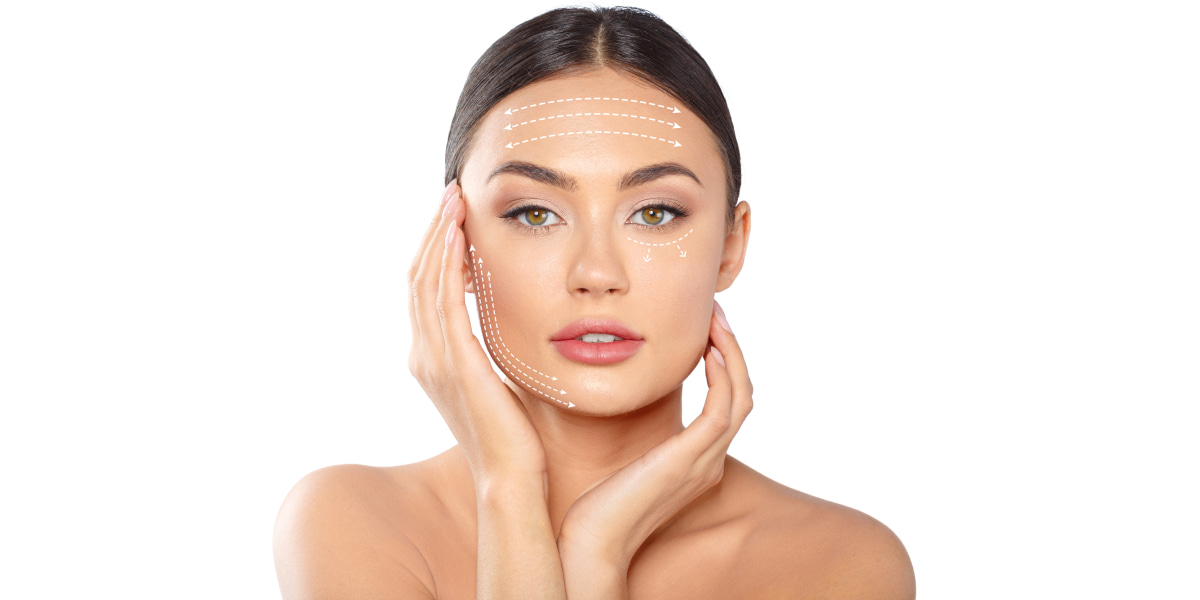Published on August 9th, 2023
Last updated on August 17th, 2023
Dry Skin During Winter: What You Need To Know

Winter is a season of beauty with its snow, holiday celebrations, and cozy nights in. However, the cold and dry air can take a toll on our skin, leaving it dry, itchy, and uncomfortable. Dry skin on the face in winter is a common problem. Left untreated, it can lead to more severe issues such as eczema and dermatitis.
The primary cause of dry skin during winter is the lack of humidity in the air. It can deprive the skin of its natural moisture. Additionally, hot showers or baths and central heating systems can have a bad influence. It can also contribute to dry skin.
Regularly using a good moisturizer is essential to treat dry skin during winter. Especially use it after showering or washing your hands. Avoid using hot water, which can further dry the skin, and opt for lukewarm water instead. Staying hydrated by drinking plenty of water daily is also a winter dry skin treatment.
In this article, we’ll take a closer look at what causes dry skin in a cold weather and its effects on your skin. What you can do to keep your skin healthy and hydrated during the winter months. The following tips and remedies will help you whether you have mild or dehydrated skin. They can restore your skin’s moisture and protect it from further damage.
Symptoms Of Dry Skin During Winter

The cold and dry air outside, combined with dry and hot air inside, can strip the skin of its natural moisture. So it leads to uncomfortable symptoms. The most common symptoms of dry skin on the face in winter include:
- Tightness or discomfort in the skin;
- Flakiness or roughness on the skin;
- Itching or irritation;
- Redness or inflammation;
- Cracks or fissures in the skin, especially on the hands and feet;
- Dull or ashy-looking skin;
- Fine lines or wrinkles that are more noticeable;
- Increased sensitivity to certain skincare products or environmental factors.
As a rule, you can experience dry skin due to cold weather. These symptoms appear anywhere on the body but are most commonly found on the hands, arms, legs, and face.
The skin can crack, bleed, or become infected in severe cases. It is because dry skin can lead to a weakened skin barrier. It makes it easier for bacteria to penetrate the skin and cause infection.
Causes Of Dry Skin During Winter

The primary cause of this issue is the lack of humidity in the air. Cold, dry air can strip the skin of its natural moisture, leading to dryness, flaking, and itching. Additionally, hot showers or baths can also contribute to dry skin during winter.
Dry skin can be uncomfortable, itchy, and sometimes painful. Understanding the causes of dry skin during winter is essential. It can help you take the necessary steps to prevent and reduce dry skin on your face:
- Hot Showers or Baths. While hot showers and baths can be relaxing, they can also contribute to dry skin. Hot water can strip the skin of natural oils, leaving it dehydrated.
- Harsh Soaps. Some soaps and body washes can be harsh on the skin, especially during winter. These products can deprive the skin of natural oils, leaving it dry. It strips the skin of its natural oils and leaves it dry.
- Excessive Scrubbing. Excessive scrubbing or exfoliating can also contribute to dry skin during winter. Over-exfoliating can also deprive the skin of its natural oils.
- Central Heating. Central heating systems can also contribute to dry skin during winter. These systems can dry out the air inside your home, leading to dry skin.
- Medications. Certain medications can also contribute to dry skin. Medications for high blood pressure, acne, and cholesterol cause dry skin.
Winter Dry Skin Treatment
The most important thing in winter skin treatment is moisturizers. You can use several winter dry skin treatment options below:
- use oils in your care;
- protect your skin with sunscreen;
- add aloe vera to your treatment, etc.
If your symptoms do not improve with home remedies, it can be necessary to seek medical attention. Dry skin during cold weather is caused by an imbalance in the skin due to temperature changes:
- being indoors with central heating;
- traveling in transport.
That’s why you need to adjust your skincare every season, including the cold season. It is just as you change your closet every few months. Just like clothes, skin care products should be chosen thoughtfully. You need to understand the goals and system of their use. Read about the dry skin treatment below.

1. Apply Moisturizer
Choosing a high-quality, thick moisturizer is essential for treating dry skin during winter. Look for moisturizers that contain ingredients like hyaluronic acid or glycerin. They can help hydrate the skin effectively. Additionally, apply moisturizer to wet skin after showering to help lock in moisture.
2. Wear Gloves
Wearing gloves, hats, and scarves can help prevent dry skin on the face, hands, and neck in winter. Opt for clothing made from natural fibers like cotton or wool, which are less likely to irritate the skin.

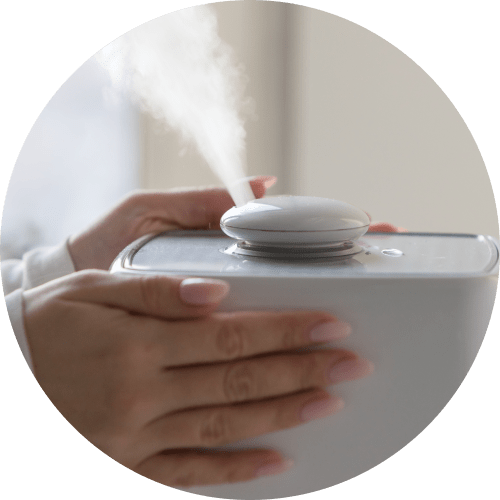
3. Use a Humidifier
Central heating systems can dry out the air in your home, leading to dry skin. A humidifier helps add moisture to the air, alleviating dry skin. Be sure to keep the humidifier clean to avoid bacterial growth.
4. Exfoliate
Exfoliating removes dead skin cells. It allows moisturizers to penetrate the skin more effectively. But, it is essential to avoid over-exfoliating. It can be a good winter dry skin treatment if you use a gentle exfoliator no more than once or twice a week.


5. Use Gentle Soaps and Body Washes
Choose milder and more moisturizing soap and body wash products. As it can help keep the skin hydrated. Look for products that contain ingredients like glycerin or ceramides.
6. Use Aloe Vera
Aloe vera is a natural moisturizer that can help soothe dry and irritated skin. Applying aloe vera gel to the skin reduces dryness and irritation. Look for pure aloe vera gel, as products containing alcohol can be drying.
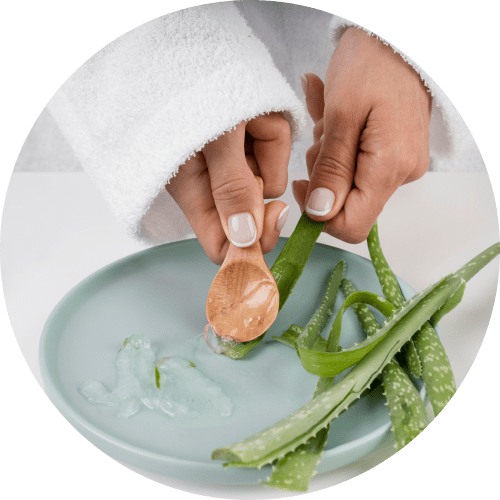

7. Seek Medical Attention
If your dry skin is severe or does not improve with home remedies, it can be necessary to seek medical attention. A dermatologist helps diagnose and treat more severe cases of dry skin. A good professional can find a good winter dry skin treatment.
8. Use Sunscreen
It is important that SPF is an integral part of skin care in winter since UV rays are also active now of the year. Also, the sun’s rays can penetrate through windows. You should apply sunscreen daily to your face and other exposed skin areas, such as your neck, ears, and hands.

Remedy For Dry Skin During Winter
Winter can be difficult for those with dry skin. As cold, dry air can irritate and exacerbate dryness. But, winter dry skin treatment can ease the symptoms of dry skin. They keep it hydrated throughout the winter months.
Firstly, a gentle, fragrance-free moisturizer is vital to hydrate the skin. Look for moisturizers that contain natural ingredients such as:
- ceramides;
- hyaluronic acid;
- glycerin.
They lock in moisture. Another effective remedy for dry skin due to cold weather is to use professional cosmetics. It will guarantee a perfect result. Because all these options are dermatologically tested. So you can get maximum benefits.
Look for a moisturizer specifically formulated for dry skin, and apply it immediately after showering or bathing to lock in moisture. One of the best is La Roche-Posay Cicaplast Balm B5. Avoid using exfoliants. After all, they can further dry out your skin. But, some good products can:
- ease the symptoms of dry skin;
- provide the right amount of moisture.
Read about winter dry skin treatment below.
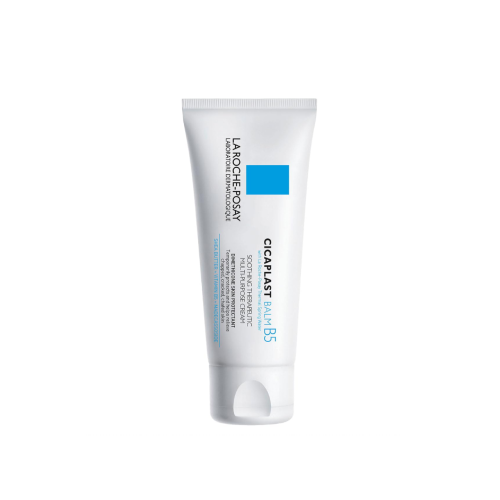
1. La Roche-Posay Cicaplast Balm B5
La Roche-Posay Cicaplast Balm B5 is an intensely hydrating balm. It soothes and protects dry skin. The rich, creamy texture makes it perfect for use in particularly dry areas, such as:
-
- hands;
-
- feet;
-
- elbows.
It contains high levels of glycerin. This ingredient keeps moisture in the skin. A
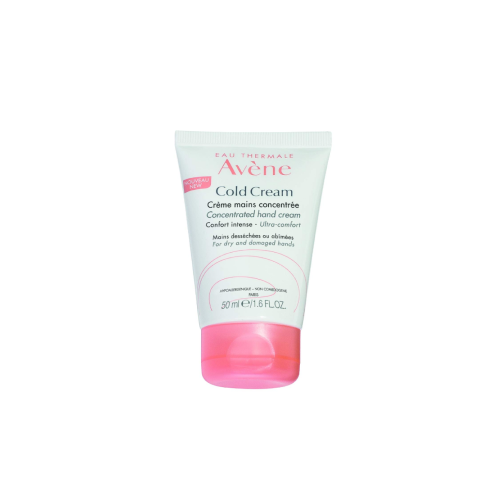
2. Eau Thermale Avene Cold Cream
Eau Thermale Avene Cold Cream is another excellent winter dry skin treatment. This nourishing cream helps restore the skin’s natural moisture barrier.
It prevents further moisture loss. It contains thermal spring water, which is rich in minerals and helps soothe and hydrate the skin.
It also contains a high concentration of fatty acids. They help replenish the skin’s natural oils. Avene Cream is a great choice with its luxurious texture and soothing properties.
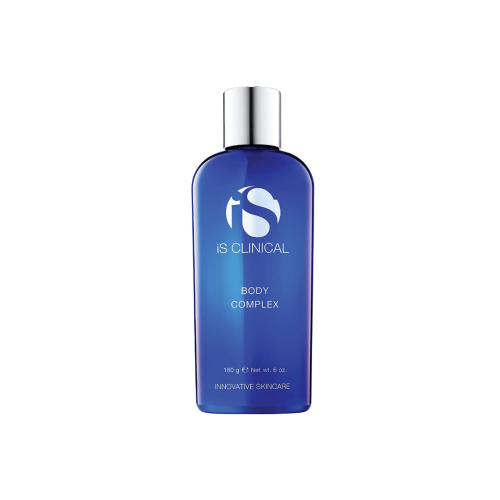
3. iS CLINICAL Body Complex
iS CLINICAL Body Complex is a multi-tasking lotion that helps nourish and protect dry skin. It contains a blend of:
- antioxidants;
- vitamins;
- botanicals.
It works together to soothe and hydrate dry skin due to cold weather. It also contains hyaluronic acid, which helps keep moisture in the skin.
Glycolic acid helps exfoliate and improve the skin’s texture. With its regular use, you can help improve the health and appearance of dry, damaged skin.
Bottom Line
After reading this article, we are sure you will not suffer from dry skin during winter. Use these tips and recommended remedies. Also, remember to read our articles to be even more conscious in the beauty industry.
FAQ
Why does my skin get dry in winter?
The cold and dry air in winter can reduce the humidity in the environment, causing moisture in the skin to evaporate more quickly. Additionally, indoor heating can also contribute to dryness by decreasing the amount of moisture in the air.
Does cold weather cause dry skin?
Yes, cold weather can cause dry skin. Cold air has less humidity, which can lead to moisture evaporation from the skin, leaving it dry.
How can I hydrate my skin in winter?
To hydrate your skin in winter, use a gentle, fragrance-free moisturizer, drink plenty of water, use a humidifier in your home or office, avoid hot showers or baths, and protect your skin from the cold weather with warm clothing and accessories.
How to prevent dry skin in winter naturally?
To naturally prevent dry skin in winter, you can stay hydrated by drinking plenty of water. Use a humidifier to add moisture to your home or office air. Eat a healthy diet of omega-3 fatty acids, vitamins, and minerals.



